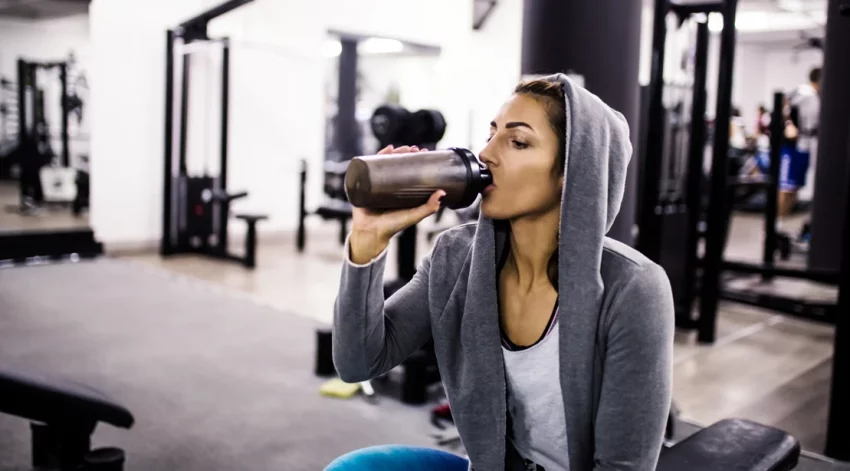Sports supplementation is very present in sports centers, gyms, or competitions, but is it really important to supplement yourself if we practice sports? This article will define when it is essential and when it is not.
One thing is clear, no supplement has miraculous effects as some promise, and whether or not to take supplementation should be assessed beforehand by a professional who can analyze each case.
When to go for sports supplements?
Supplementation must be a compliment; it must not be forgotten that the basis for the body to obtain the necessary macronutrients and micronutrients is a healthy and sufficient diet that covers the requirements and needs of each person. The key to obtaining sports results, such as gaining muscle mass, is quality training, a good sports diet, and sufficient rest (hours of sleep).
When to resort to supplementation will depend on the type of physical exercise or sport you practice. In sports of high intensity, resistance, and long duration or intermittent sports, such as team sports, where the physical demand is high, it is essential to drink a sports drink, mainly in the form of an isotonic drink, to hydrate yourself. Hydration with this sports drink will provide energy in the form of carbohydrates and, most importantly, replenish the minerals lost through sweat, mainly sodium.
Gels and sports bars that provide the necessary energy in the form of carbohydrates during the competition and are easily digestible are what the body needs during sports such as marathons, cycling, triathlons, etc., that is, in sports of long duration and high intensity.
It is always recommended to have tried these nutritional strategies before training. In addition, as foods that can complement the intake of gels or sports bars, we find fresh and dried fruit, which provide simple carbohydrates that provide instant energy and are also easily digestible foods such as bananas, apples, etc. figs, or raisins.
At the end of these demanding competitions, a recovery shake that provides carbohydrates, proteins, and mineral salts will provide the body with what it needs to start recovery and muscle regeneration. But there are other ways since this recuperator could be made at home with foods that provide carbohydrates, protein, and sodium.
However, it depends on the intensity of the exercise and its duration; a recovery shake is the most appropriate after hours of sports practice. This is the case, for example, at the end of a marathon or triathlon where just after the competition, the body can assimilate better and, above all, faster a recovery shake that is in liquid form than a solid meal that requires more digestion. This solid food rich in vegetables, carbohydrates, and protein will be after and after taking the recovery shake for a while.
Supplements for strength sports
In strength sports, some supplements can be useful but are optional.
Whey or whey protein:
It is the star supplement in all gyms, many people take it during or at the end of their training, believing that this will increase their muscle mass, but like any supplement, you have to know why and what you are taking it for and what the diet is like. It is being done on a day-to-day basis.
Is it really important to drink protein shakes after exercise?
Eating a full meal at the end of strength training that provides protein and carbohydrates will allow the muscle to provide what it needs. In other words, the whey protein shake will not have more effect than a balanced meal.
Now, it is true that some athletes continue training after strength training and do not have the option of eating solids since they would need digestion to continue training, or because of their high energy needs, the shake is a good complement to cover all needs.
Another aspect to consider is the famous metabolic window, but does it exist, and is it only located right at the end of training and for the next hour? Recent studies have shown that this is not the case and that the muscle is sensitive to this intake up to several hours after exercise with a correct protein intake.
In addition, the width of the metabolic window will also depend to a large extent on the type of food eaten before training. If this food has been of nutritional quality, the post-training metabolic window will be wider. Therefore, the first nutritional contribution doesn’t have to be in the hour after finishing the training, but it can be very positive.
BCAA’s, branched amino acids, leucine, isoleucine, and valine
Supplementation with these amino acids could reduce the damage suffered by muscle fibers in intense exercise and delay fatigue. Still, there needs to be more evidence regarding the benefits they could provide if the person is already following an adequate diet.
Creatine
Our body manufactures this compound from arginine, glycine, and methionine. Foods such as meat and fish provide some creatine. The creatine supplement has shown beneficial effects in strength and speed sports, that is, in those high-intensity, explosive, and short-duration exercises that require the ATP-phosphocreatine energy system and in which the objective is to increase muscle mass and work the force. It can be taken both before and after training.
HMB (hidroximetibutirato)
It is a metabolite that is formed from the amino acid leucine. It improves protein synthesis, can help increase strength, and improves muscle damage generated in sports activities, especially for those with a great workload of muscle strength.
Other Supplements
Caffeine
With its stimulating effect on the central nervous system, it has positive effects in long-term exercises, especially those at 70-80% of VO2 max. Due to its possible side effects (nervousness, palpitations…), the recommended dose is moderate or low, and the individual tolerance of each one should always be assessed.
Vitamins and minerals
Some athletes take multivitamins without any professional medical supervision, believing that this will improve their performance or the function of the immune system.
These necessary micronutrients for the proper functioning of the body are obtained naturally and with greater bioavailability by eating a varied and balanced diet and not through turkesterone uk supplements. Moreover, an excess of these through supplements can be harmful; therefore, if taken, it must be under medical supervision, as with iron supplementation.
Probiotics
There has been some positive evidence of how athletes could benefit from probiotics (live microorganisms that balance the gut microbiota) and positively impact their gut health and, therefore, overall health.
This is something to take into account mainly in athletes in endurance events, where it is common for some of them to suffer from gastrointestinal discomfort, and this affects their performance. Probiotic foods are kefir, yogurt, and fermented cabbage (sauerkraut).
Conclusions
Paying attention to the right time for nutrient replenishment is very important in any sporting activity, whether in supplementation or food. And not abusing protein supplements is also an important message. Simply taking more protein will not produce better strength and increased muscle mass results.
For the latter, several factors influence (apart from the fact that the body assimilates a certain amount of protein), and as I have already said, the most important are: quality training, adequate nutrition where everything is not only focused on proteins, but also the carbohydrates are in the amounts that the body needs to recover from sports practice, and also restorative rest.
In short, no supplement is magical, and following a healthy and varied diet is the key to giving the body what it needs to recover from a sporting activity. From there, a dietitian-nutritionist can assess each case and decide which supplements could complement sports practice and healthy eating.




